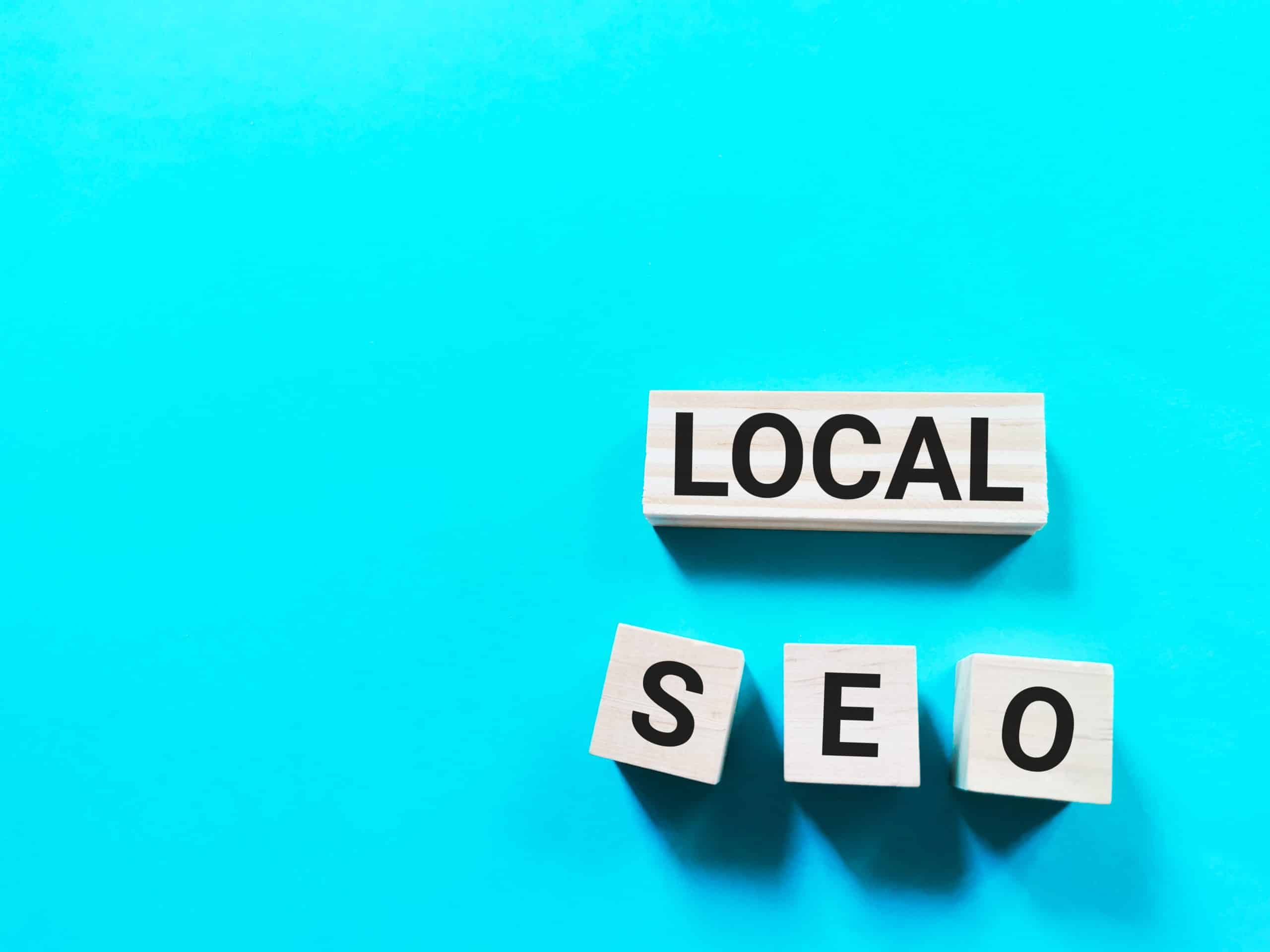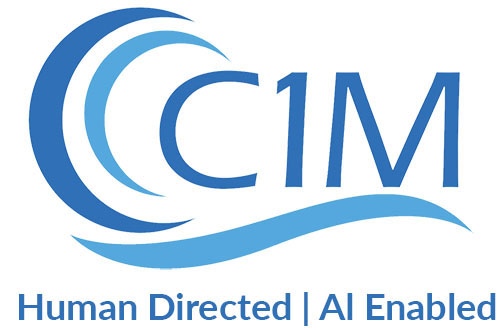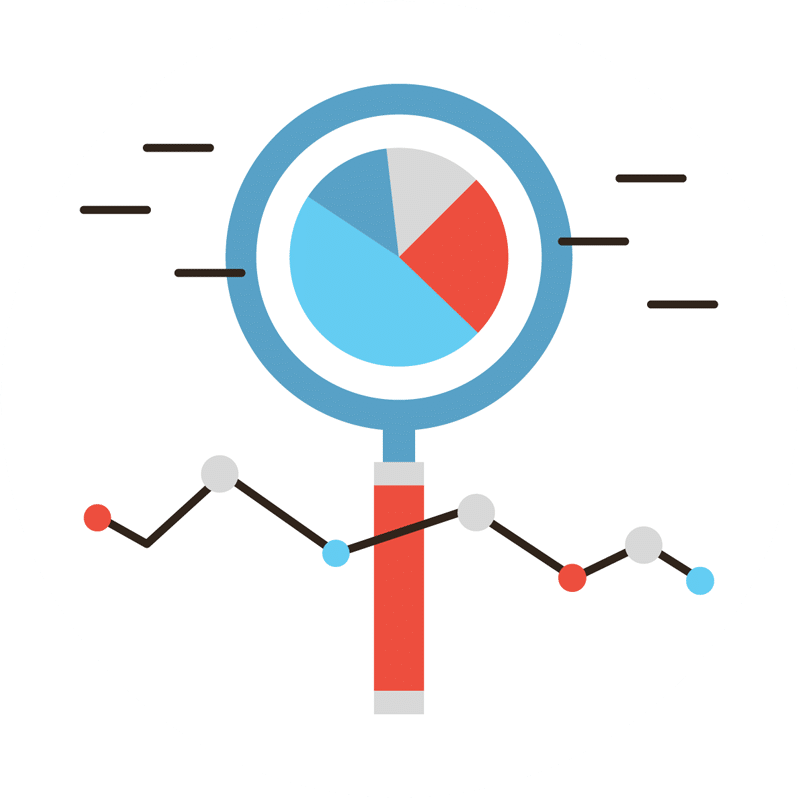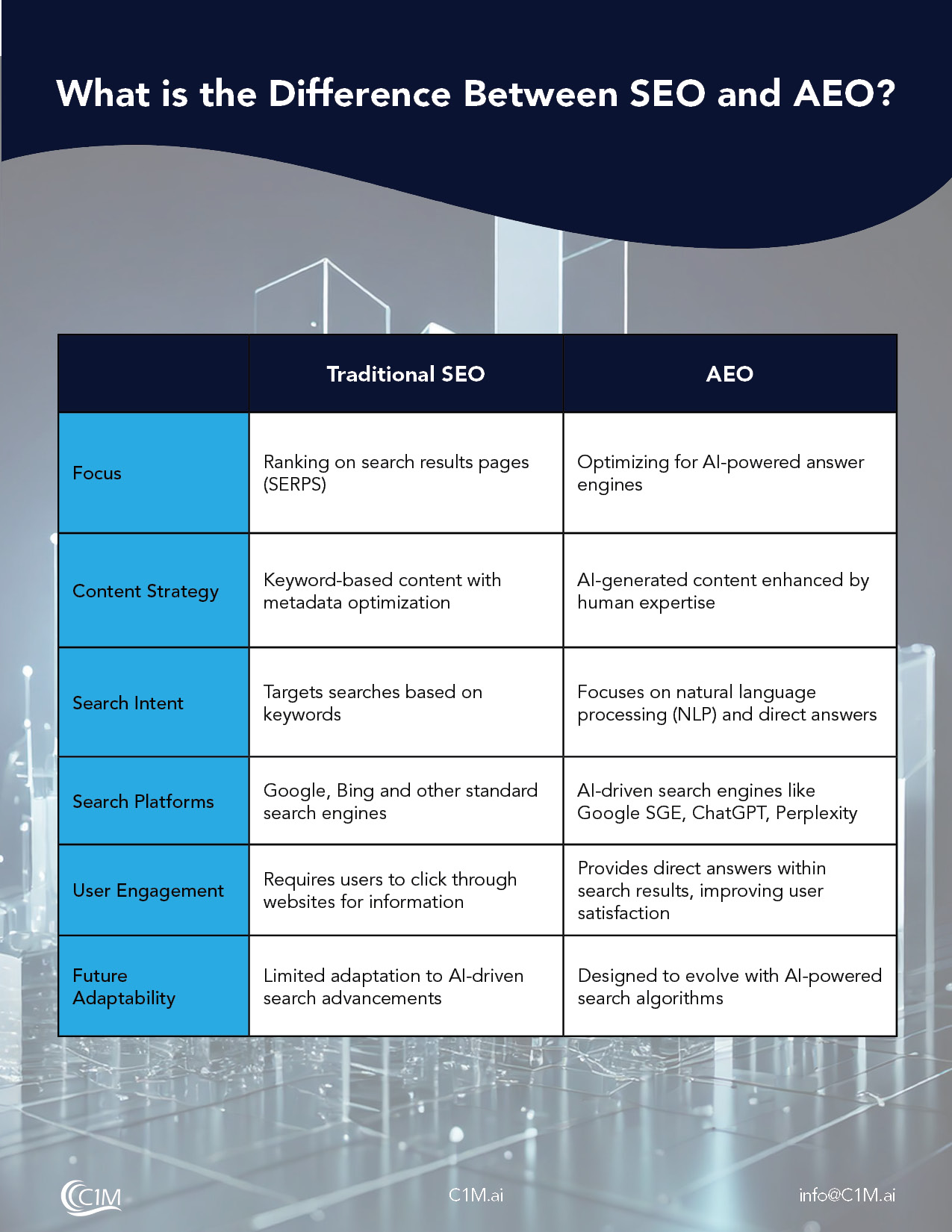
Small businesses are on the rise. There are approximately 33.2 million small or local businesses in the United States today, which comprise 99.9% of all businesses in the country, per the Small Business Administration.
As a result, if you are a local business with a brick-and-mortar location, chances are that you also have a number of local competitors. First, start by conducting an online search for local services and products in your industry. You’ll likely uncover a long list of business listings that are also trying to reach your potential customers.
Having high local search visibility is key to attracting a local audience who will be interested in your business, both online and in person. Therefore, a smart local SEO strategy is required to dominate the local search results.
Table of Contents
How Do You Know if You Need a Local SEO Strategy?
Creating a Local SEO Strategy: The Basics
The Essential Components of a Local SEO Strategy
How to Optimize Your Website for Higher Rankings in Search Engines
Develop a Strategic Local SEO Strategy with C1M
SEO Strategy for Local Small Businesses
However, as a local business owner, you are concentrated on providing exceptional services or products to your community. Chances are that you don’t have the time, bandwidth, or expertise to create a local SEO strategy that will show up at the top of local search results.
You may have done the basics, such as conducting keyword research or ensuring you have local content and local links on your business page. However, an effective local SEO strategy goes miles beyond the ability to create informative content. From how you utilize your Google business profile to how your online marketing plays a role, several factors must be accounted for to grow your online visibility.
So, if you want your local business to continually appear at the top of any organic local search, keep the following guidelines in mind to connect with your potential local customers. This way, you can stay ahead of a crowded field of local competitors.
 What is Local SEO?
What is Local SEO?
Local SEO (or search engine optimization) is about increasing your local business presence on search engines to attract potential customers close to your physical location. Local SEO is a key component of any local business marketing plan. It attracts local searchers who are looking for businesses just like yours, and in your specific geographic area.
Therefore, when it comes to increasing your potential customers, showing up at the top of search results is instrumental. This is one of the most profitable ways to grow yourlocal business.
An estimated 46% of all Google searches are looking for a local business or service provider. Nearly 80% of these local searches also lead to eventual conversions or purchases.
Think of the last time you searched for service providers in your area, like local contractors or local marketers, through Google maps or a straightforward search engine. Chances are that while there may have been dozens of local search results, (and multiple search engine page results), the local listings that attracted your attention were the local businesses that appeared first in the search results.
Having a presence in local business directories and/or multiple websites is important. However, the best way to find new customers is to increase your local SEO efforts. Luckily, there are a number of local SEO tools and local SEO tips to increase your standing in a search engine’s local rankings. As a result, this can increase your online visibility, positive reviews, and profitability over the long term.
How Do You Know if You Need a Local SEO Strategy?
Generally speaking, you need a local SEO strategy if you own a local business with one or more brick-and-mortar locations. However, there are other factors that may come into play as well.
If your business provides services in multiple locations, you’ll want to connect with each geographic location individually with multiple and location-specific landing pages. Therefore, if your online or local business tends to cater to potential customers in a certain geographic area, (such as an online surfing gear company that has a big California following), then you’ll want to adopt a local SEO strategy as well.
Most importantly, a local SEO strategy is required if you are unsatisfied with your placement in local rankings in search engines.
If you do a search for comparable local businesses, and your business is at the bottom of the list of organic search results, then you’ll want to boost your local SEO in order to increase your online presence and attract that much-needed local business.
 How Does Local SEO Work?
How Does Local SEO Work?
The best way to increase your local SEO is to partner with a company that specializes in all aspects of a smart local SEO strategy, from understanding how data aggregators work. Additionally, identifying local SEO best practices, and understanding how to partner with local news outlets and sites to create a heightened presence in local searches.
Companies like C1M utilize a number of local SEO tools to address all the ranking factors that go into propelling a local business to the top of search results. Additionally, our marketing experts will continually monitor your businesses’ placement in varying search engines to ensure that when it comes to local companies in your business category, your organization constantly stays on the radar.
With that being said, there are a few Local SEO strategies and local SEO tips that small businesses can employ to enhance their standings in search results. Moreover, it starts with understanding the many marketing pieces including a complete Local SEO strategy.
Creating a Local SEO Strategy: The Basics
When it comes to having a noticeable presence in online business directories, there is a wide array of ranking factors to consider in order to create a comprehensive local SEO strategy. This includes the content on your local landing pages, the technical details of your website, and how you connect with search engines and essential tools like Google My Business.
However, it all starts with understanding where your local business currently ranks among competitors in your geographic area.
Collecting the Backbone Data for Your Local SEO Strategy
There is a large amount of information you’ll need to obtain before you can start making adjustments to your online content to ensure a higher presence in search results.
This background data will help form a blueprint for the steps ahead. Therefore, it will also give you a better understanding of how your local content and local landing pages compare in a crowd of search results.
Domain Authority
Domain Authority is a search engine ranking score that was first developed by Moz. Additionally, it predicts how likely a website is to rank in search engine result pages (SERPs). While Google My Business doesn’t utilize domain authority directly, domain authority is a good indicator of your performance in search results concerning your local competitors.
Keyword Research
Keyword Research is instrumental in determining how potential customers are finding businesses like yours in your geographic area. A local keyword research initiative entails finding those specific phrases and terms that lead to results and in-person visits. Furthermore, while the keywords that you should use in your local content may first appear obvious, it’s not as simple as it initially seems.
Keyword Research entails identifying the verbiage most often used for local queries, ensuring that the keywords match the user’s local intent. Additionally, it is any query in which Google assumes the user is looking for a local result and making sure the information filters to data aggregators (which compile information for major search engines.)
When it comes to local keyword research, you can utilize an online keyword research tool to get started. There are many to choose from, but your best bet is to collaborate with a digital marketing company that specializes in extensive keyword research and all the variable factors at play.
Competitors in Local Search Results
It is also helpful to identify the main competitors in local directories and make a note of how they got to the top of the list in varying search engines. Did they appear at the top because of paid advertisements, or were they part of organic results? What is their local content on their website, and how is it different than yours? While you can’t copy your competitors directly, reviewing their websites, Google posts and Google business profiles is a helpful step in determining the best local SEO strategy going forward.
The Essential Components of a Local SEO Strategy
Once you have a better understanding of how you rank against other local businesses in your area, it’s time to take concrete steps to improve your standing in local search results.
Google My Business
Use Google My Business (or GMB) as it is a free SEO tool that allows you to manage how your local business appears in various local search results.
Google My Business has an easy-to-use platform that walks local businesses through every step of creating a Google business profile. However, essential steps when first creating your Google business profile include the following:
Add as much pertinent info about your local business as possible
- This includes your address and phone number, your hours of operation, and the services you provide. For example, delivery or take-out for a restaurant and landing links to your website and/or social media pages.
Add images
- According to Google, local businesses that use photos have 35% more clicks to their website and a 42% increase in requests for driving directions to their physical location. Be sure and include an eye-catching cover photo and profile photo. Additionally, optimize your images for your Google My Business account by ensuring that all photos used are at least 720 pixels wide by 720 pixels high and are JPG or PNG files.
Utilize Google Posts
- Google Posts were first launched in 2016 and serve as an easy way for you to publish content directly to your search ending results page.
Map Pack
- The Google Map Pack (also known as the local pack) is often the most favored position in Google’s local search results. When potential customers search for local businesses, the search results are displayed in various ways. Therefore, the local pack is the set of three highlighted Google-Maps-based results that feature the most highly ranked businesses in an area based on the many factors that determine local rankings.
A local SEO expert can help identify these ranking factors to earn your business a coveted spot on the local pack. However, a good starting point is to ensure your Google My Business profile is complete, and your customer reviews are numerous and outstanding.
Other Online and Local Directories
Outside of the Google My Business arena, there are a number of other online directories to pay attention to when it comes to a comprehensive local SEO strategy, such as:
- Yelp
- Better Business Bureau
- Bing Places
- Yellow Pages
- and many more
Submit your basic information, including your website URL, address, and phone number, to improve your local SEO. Ensure your pertinent info (like your address and phone number) is consistent across all online and local directories.
Your Website, Content, and Reviews
Creating a Google My Business profile should automatically give your business a boost when it comes to ranking higher in search results. However, to truly optimize and influence local SEO, you need to start with your website, social media pages, and your presence in local directories and other outside sources.
How to Optimize Your Website for Higher Rankings in Search Engines
Ensure Your Website Works on Mobile Devices
- The majority of searches for local businesses are mobile searches. So, it’s essential that your landing pages look good on all devices, regardless of whether a user utilizes a desktop or mobile search to find your business.
Double Check the Basics
- All of your information must be correct throughout your website, social media accounts, and local directories. Make sure that your business’s primary address and phone number are consistent across all sites and platforms. Also, make sure that your address is recognized by Google. For example, Google may not recognize some abbreviations in street addresses or typos in physical addresses.
Pay Attention to the Title, Meta Description, and the Technical Details of Your Website
- Including keywords in the page titles and meta descriptions across your website is a great way to naturally boost your local SEO.
Review Your URL structure
- All of the landing pages within your website should have clear and concise URLs that include your keywords, provide a concrete summary of the content, and are optimized for local SEO results. You’ll also want to make sure that you remove any broken links on your website, as this can hinder your standing in search engines. Additionally, make sure you do not have any duplicate content or duplicate pages with the same information.
Create Keyword-rich Local Content
- In our modern era, the algorithms that Google and other search engines utilize to identify content that match a searcher’s local intent are highly advanced. You’ll want to include as many keywords as possible to be sure. However, you’ll also want to ensure that your content is informative, engaging, and highly readable to grab Google’s attention and attract links and local citations from other websites and businesses in your area. Simply put, position yourself as an expert in your field, and provide informative information that doesn’t sound like it was created by a keyword-reciting robot. Therefore, the outside links and search engine attention will follow.
Optimize Your Images, Videos, and Other Media
- Overly large images and videos can cause speed issues loading your website, while too-small images can appear pixelated and unprofessional. Make sure all of the photos on your site are optimized for the web (with a 72-dpi resolution) and are displayed correctly across all devices.
Focus on Link Building and Forming Partnerships
- Link building is the process of acquiring and referencing hyperlinks from other websites to your own, which can boost your ranking in various search engines. Just be sure the links you use are from trusted or expert sources and aren’t connected to local business competitors.
Promote positive reviews
- Great reviews (and plenty of them) are a cornerstone of any local SEO strategy. When it comes to increasing your positive reviews, there are a number of SEO tools available to help. A good starting point is your social media pages, where you can encourage your fans to share their positive experiences on Google, Yelp, TripAdvisor, and other widely recognized review websites. Furthermore, you can also partner with a local SEO specialist to create a broader local SEO strategy that generates positive customer reviews.
Develop a Strategic Local SEO Strategy with C1M
All of the above local SEO strategies and guidelines ensure a higher ranking on local search results. However, it can be a challenging task for small businesses.
There are several local SEO search tools available to help with varying aspects of a complete local SEO strategy. Such as keyword research tools or testing tools to ensure your site looks good on all devices. Additionally, ensuring a complete local SEO strategy has all the ranking factors accounted for is no easy task.
Most small and local businesses simply don’t have the time, resources, or suite of local SEO tools required to maximize their local SEO. Furthermore, with the number of small businesses growing across the country, this can have a hard impact on your company’s local and online visibility.
C1M is Your Primary Source for an Effective Local SEO Strategy
When developing and executing a multi-faceted local SEO strategy that works and has measurable results, you need a partner with expertise in all aspects of local SEO optimization.
With a multi-disciplinary team of experts in design, copywriting, development, automation, blogging, keyword research can help you achieve all of the factors necessary leading to a complete local SEO strategy. C1M is your most valuable resource for ensuring your local business stays at the top.
Let’s give you a boost against your local competitors and connect you with potential customers in your geographic area who will propel your small business’s visibility and overall success.
Receive a complimentary competitive analysis to get started.


 What is Local SEO?
What is Local SEO?  How Does Local SEO Work?
How Does Local SEO Work? 





